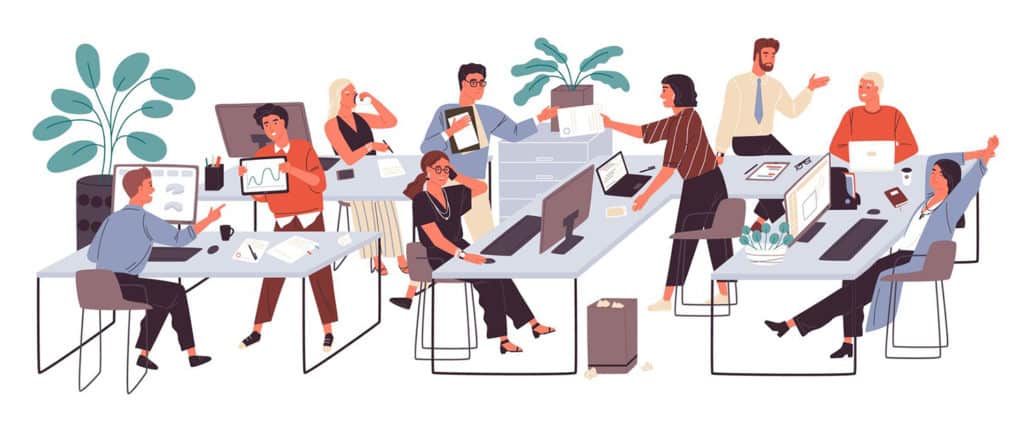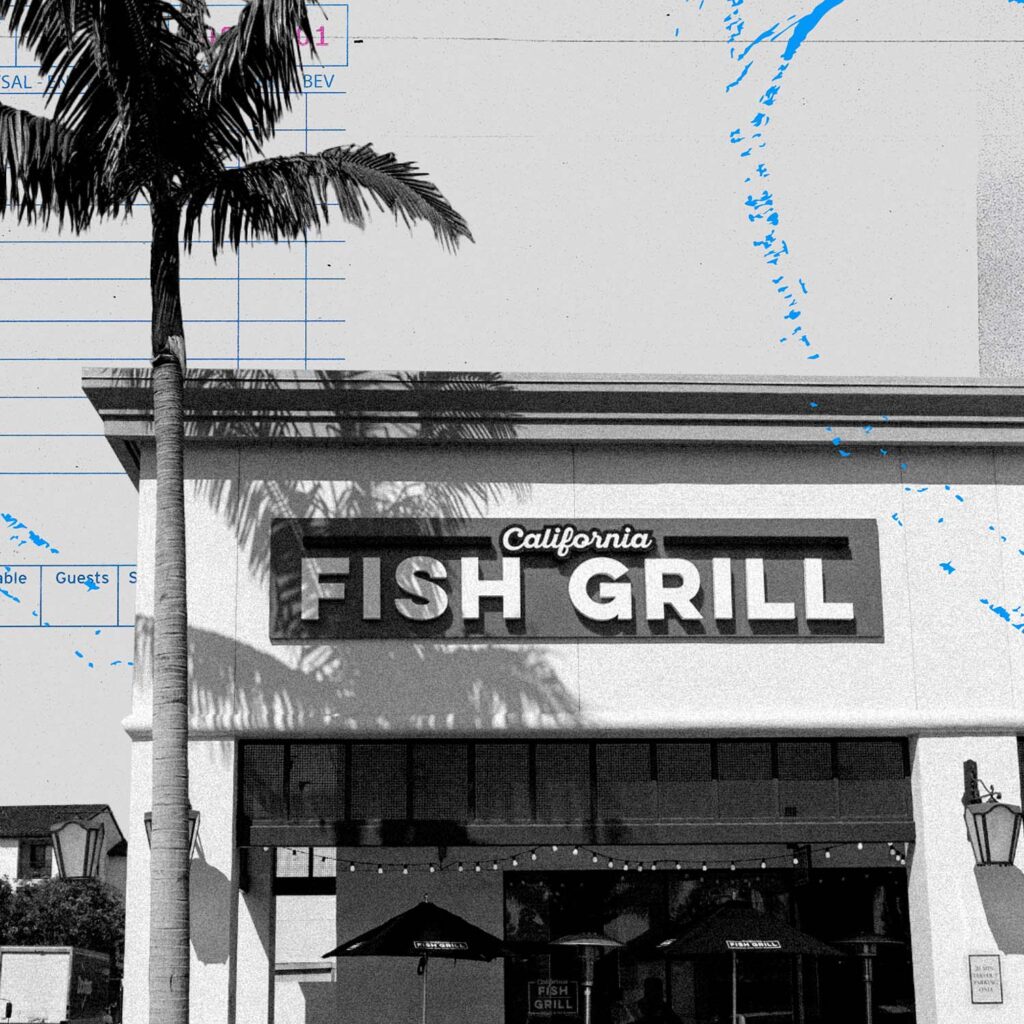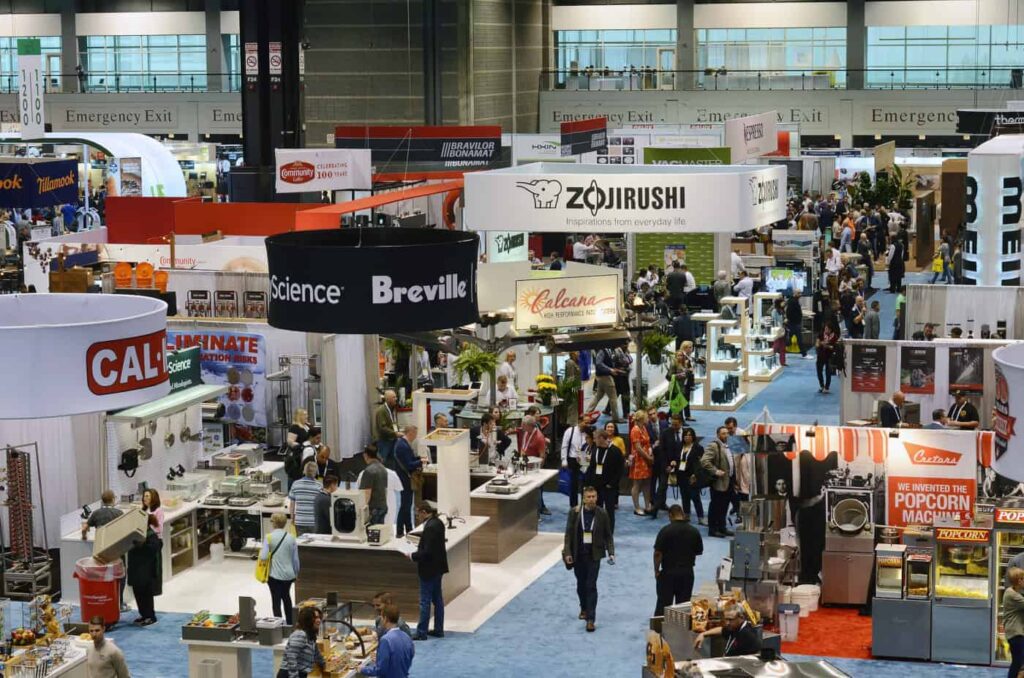This article appeared in Built in LA.
In engineering, communication and knowledge sharing help team members connect, hone their product and build a culture of respect.
“An elephant never forgets.”
Many of us have heard the idiom before, but we might not have considered the benefits of good memory in the tech world — or how it relates to clear communication.
Elephants have complex brains that are formed to facilitate learning and memory. And like humans, elephants express complex thoughts through language. They use hundreds of calls, expressions, signals and gestures to coordinate movements, reinforce bonds, share knowledge and work together toward a common goal.
But this knowledge sharing isn’t only beneficial in the wild. It’s a high-level tactic that humans use in the tech industry — and particularly within engineering teams.
Engineers at GrayMatter Robotics rely on communication and knowledge sharing to cooperate as a team and hone their product. And while it’s not necessary for survival, their communication is essential for product evolution.
“With the evolving robotic products we make, each team member has to adapt to the changing requirements and keep a situational awareness of the robot’s entire system,” said Brual Shah, co-founder and CTO.
Built In Los Angeles sat down with GrayMatter, Miso Robotics, Artium and Restaurant365 to learn how they communicate and share knowledge to improve clarity, efficiency and employee well-being.
GrayMatter Robotics
Brual Shah, Co-Founder and CTO
GrayMatter Robotics creates robotic solutions to assist humans in tedious and ergonomically challenging tasks.
What’s one key communication habit you’ve developed and encouraged among your team?
Regular, open communication and thoughtful knowledge sharing is perhaps the most beneficial team habit for us. Robotics is multidisciplinary by nature and so are the skill sets and backgrounds of our team members. These skill sets and backgrounds all bring their own sets of challenges that combine with the innate challenges of a rapidly-changing and improving product you would expect in an early-stage AI robotics startup.
To cater to these challenges, one of the things that has helped us the most is regular knowledge sharing across our multidisciplinary team. We started to encourage communication and knowledge sharing through a weekly tech newsletter that provides everyone with an update on what features have been added, changed or deprecated. It is easy to read and provides a good synopsis of what we are doing and what’s new. Our team members now reach out to the respective authors of newsletter updates to do some quick knowledge sharing to know more about the changes.
Why is this an important habit to cultivate, and what effect has it had on the team culture or the way your team works and collaborates?
In addition to making a collaborative working environment, open communication and knowledge sharing helps us focus on the needs of the customer. One of the most important habits for any team, but especially ours, is connection and feedback from customers. In most organizations, this is difficult as the product development team has little or no direct contact with customers –– just a list of requirements to execute handed to them by other departments and teams.
In our experience, this approach did not work and was not how we wanted our culture. Following requirements without context leads to the creation of a product without the real essence of what the customer wants the robot to do. We asked each team member to field the customer support calls directly in some shifts to see firsthand how the customers are using the system and what issues they are facing. You could see the mindset shift in our team and how that knowledge sharing made us closer and more innovative.
Each feature is now specifically evaluated by almost everyone for its value to the end-user. It really helped us to develop features and processes that have drastically improved our customer experience.
What advice do you have for other engineering managers who are looking to create healthy communication habits among their teams?
In my experience so far, the biggest learning is to not be rigid, but be evolving and share that evolution. And not just by yourself but as a team. Don’t enforce; encourage the team to come with methods and techniques that work. Our team members have come up with methods and techniques that fit their needs well, such as standups, knowledge-share, documentation and Slack channels. An added benefit is when a method doesn’t work, it is modified or replaced with what works. And as the team evolves, these communication methods evolve, too. It really rests on a culture of respect and curiosity. We like working together, and we find insight and inspiration by listening and constantly trying to make our product better.
Restaurant365
We are hiring
Kevin Beach, Chief Technology Officer
Restaurant365 is a smart restaurant management software that combines restaurant modules with an integrated accounting system.
What’s one key communication habit you’ve developed and encouraged among your team? Give us a quick example of what this looks like in action.
Be a servitude leader: Ask how team members are doing and if there is anything you can do for them. I believe that listening is equally as important as directing. Some of our best results came from unexpected places someone might not traditionally look to for collaboration.
Why is this an important habit to cultivate, and what effect has it had on the team culture or the way your team works and collaborates?
One of Restaurant365’s core values is to “solve problems together.” Our company is a self-starting environment and people might not consider asking for help. We have a very talented group of people, so our journey and results are significantly better and faster when we seek others’ input.
What advice do you have for other engineering managers who are looking to create healthy communication habits among their teams?
As we transitioned to an almost fully remote team, encouraging and facilitating virtual gatherings had a significant beneficial impact. We have a buddy system for one-on-one peer interactions between tenured and new team members, virtual team lunches and quarterly engineering-led all-hands meetings where each team discusses their accomplishments and challenges from the previous quarter.
Miso Robotics
Ryan Sinnet, Co-Founder/Chief Research Officer
Miso Robotics develops and manufactures artificial intelligence-driven robots that assist chefs to make food at restaurants.
What’s one key communication habit you’ve developed and encouraged among your team?
Leverage the collective group knowledge and build on it instead of working in isolation. It is easy to obsess over problems, to want to solve challenges from first principles and to try to leap the intellectual gap unaided and be rewarded with the unabated thrill of discovery. That’s great early on in your career because that thrill inspires an individual to pursue a chosen career with passion, and it is the only way to develop a solid foundation of knowledge. But once that foundation is established, you can guide your learning by connecting with others and leaning on their knowledge and experience to accelerate your own knowledge growth.
In our organization, we have a cultural norm that we’ve developed which perpetuates this communication habit: “When you start working on something new, ask everyone who might know something about the challenge. Look in the work logs, look at the documentation, look at the code history. Find out who knows something and get as much information as you can.” In practice, we have a variety of public Slack channels and Confluence spaces that are used for discussion and knowledge sharing. Team members will post messages and discuss ideas.
Why is this an important habit to cultivate, and what effect has it had on the team culture or the way your team works and collaborates?
Miso Robotics operates in a space that requires technical knowledge in a wide variety of fields, much wider than a traditional software or hardware company. There is no person in the world who has expert-level knowledge in everything, or even in more than a few areas. So we bring together world-class experts in specific areas and have them communicate to discover novelty in the intersection of different fields. This is one of the reasons this habit is so essential for our organization.
This habit creates a process in which weak ideas are strengthened or discarded early on. It’s not uncommon for a new member at Miso Robotics to come upon a challenge, sketch a rough plan of how to approach it, and then ask around and find out that a few tweaks to the plan and reusing existing technology can cut out 90 percent of the work. This is so important because it not only reduces cost and time-to-market, but it prevents the introduction of additional unnecessary complexity — the sworn enemy of scale — which can grow over time to decelerate the pace of innovation.
What advice do you have for other engineering managers who are looking to create healthy communication habits among their teams?
Establishing effective communication means creating an environment where everyone feels safe and respected and where failure is recognized as a crucial step in eventual success. Without this, there is no reliable way to ensure healthy communication habits in a team; the team will be too preoccupied with fear to be effective. The easiest way to create a safe environment is to be genuine and to be transparent about your principles so everyone knows what to expect.
Encourage communication and networking among team members to facilitate knowledge sharing and collaboration. If someone asks you for help, share your knowledge and then point them to others who might know more. You can connect two team members who haven’t collaborated before and create a new route for knowledge sharing, that is the best outcome. Take every opportunity to provide context: it will enable team members to make more decisions. If you get this right, the team can self-organize and everyone will work together to unblock each other, and they will teach new team members to do the same.
Artium
Rob Staton, Director Of Engineering
Artium is a technology company founded to give every organization the software development capability to achieve its vision of the future.
What’s one key communication habit you’ve developed and encouraged among your team?
For me, it has been orienting communication around action. It is easy to have a discussion; it is not easy to have a discussion where you come away with a conclusion and then take action based on that conclusion. We see this a lot in retrospectives where we prompt each participant to come up with action items to pull from the discussion. We can also do this in something as simple as meeting preparation. Having an agenda is great, but going beyond that and establishing the decisions and the outcomes needed provides immense value.
Why is this an important habit to cultivate, and what effect has it had on the team culture or the way your team works and collaborates?
Until you can reach decisions, you can not affect change. This approach has helped the team optimize everything from code to process and even conflict resolution strategies. I think it is an important habit to cultivate because it helps us make the most of our limited time together and maximize our impact as an engineering team and as artisans.
What advice do you have for other engineering managers who are looking to create healthy communication habits among their teams?
Never underestimate the power of asking your team for help as a leader. Specifically, turn your tells into asks. When you shift your language, you convey that you trust that person and trust their response. That confidence promotes self-organization and gives space for your people to express feedback about the task, whether it is good or bad. My second piece of advice is to always be liberal and honest when expressing gratitude. When you express thankfulness, it makes people feel good. And when people feel good, they want to continue to do the things that made them feel that way. As engineers, nothing is more important than feeling appreciated and empowered.



